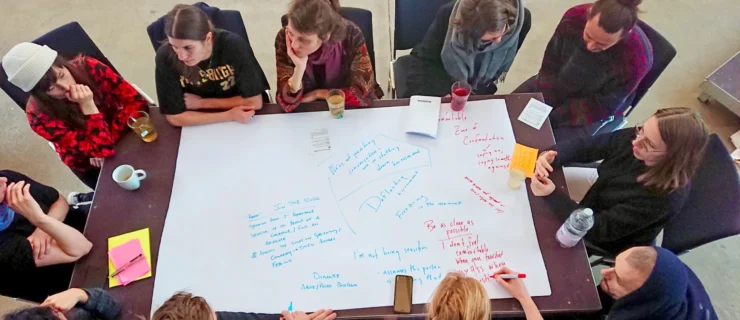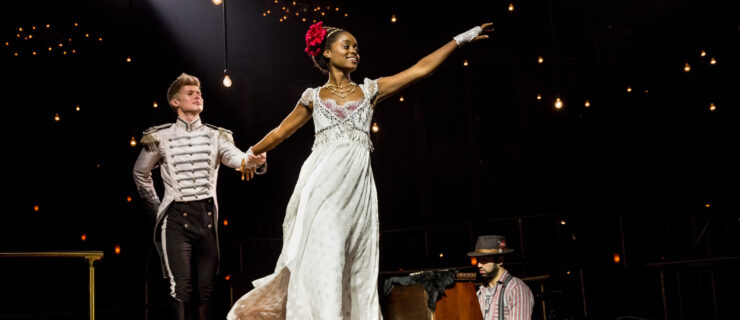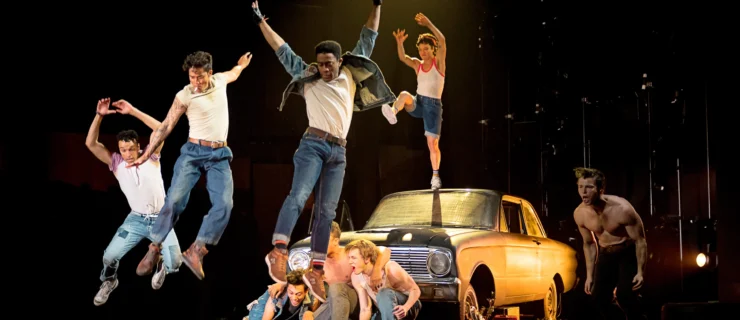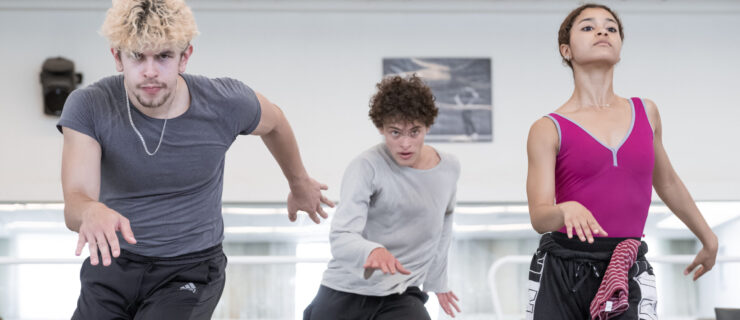Roland Petit
Roland Petit
Théâtre Jean Vilar
Suresnes, France
March 3–7, 2004
Reviewed by Karyn Bauer-Prévost
“I was 5 years old when I first started dancing in my father’s bistro. I was the main attraction.” Seventy-five years later, Roland Petit is still moving, and he was the unforgettable main attraction in Roland Petit raconte les chemins de la création, an autobiographical stroll through more than six decades of creativity that premiered in the Parisian suburb of Suresnes in February.
With his hands in the pockets of his loose-fitting black jeans, Petit, the eternal storyteller, lightheartedly yet passionately walked the audience through a retrospective of some of his favorite personal creations, describing how he progressed from being a lanky kid at the Paris Opéra Ballet to becoming the international figure he is today. As he had done in the early 1970s with the exhaustive 17-tome work of Marcel Proust—reading it, then breaking it down into the poetic dance Proust ou les Intermittences du coeur—Petit looked back on the extensive volume of his life, bringing to stage a fine selection of some of its most remarkable moments. One of them was Les Intermittences, superbly interpreted here by the graceful and expressive Lucia Lacarra and her partner, Jan Broeckx.
A choice group of young dancers, including Petit’s delightful assistant and faithful dancer, Luigi Bonino, performed excerpts of choreographies ranging from the tragic Le Jeune homme et la mort, created during the dramatic early post-war days of the Ballets des Champs-Elysées, to his unforgettably playful homages to Charlie Chaplin and Duke Ellington. The young Japanese dancer Ken Kikuchi, 20, for whom Petit dreams of creating a solo, energetically interpreted “Run Like Hell,” an excerpt from The Pink Floyd Ballet, designed for the Marseille Ballet in 1972. Video clips brought dance history to life: Rudolf Nureyev and Margot Fonteyn chuckled through rehearsals for one of the many shows Petit choreographed for them in London during the mid-1960s; Petit himself performed Carmen with his wife and longtime partner, Zizi Jeanmaire; and Jeanmaire strutted her way through the fantastically successful Mon truc en plumes.
After three hours of blissful reminiscences, complete with anecdotes from his working relationships with Pablo Picasso, Jean Cocteau, and his beloved Fred Astaire, for whom Petit calls for a tribute, spectators drifted into the night with the sensation that they had shared an intimate moment of living dance history.




